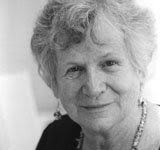“Child advocates must consider all factors that interfere with optimal development and press for circumstances that allow each child to fully reap the advantages associated with play. “
— American Academy of Pediatrics, October 2006
The last decade has seen radical changes in early childhood education. The achievement gap between low-income children and their more affluent peers and new insights from brain research showing the importance of learning in the early years have focused public attention on early childhood, from birth to age six, and sparked a national campaign for school readiness.
Preparing children for school and im-proving the quality of early childhood education are critical goals. But the means to achieving them, now commonplace in preschool and kindergarten—including academic drills, scripted teaching, and standardized testing—are misguided and detrimental to the needs of children and society.
Flexibility, perseverance, empathy, curiosity, social awareness, and resilience are best developed in young children through activities that are often dismissed as “only play.” A body of compelling research and pedagogical experience show that open-ended play and other child-initiated activities are essential for all aspects of children’s development, especially their academic success. Yet, sadly and dangerously, exploratory play is missing from the lives of growing numbers of our youngest citizens.
Our purpose is to broaden and refocus public conversation about early childhood and its long-term implications for a child’s life and for society; to restore imaginative play and hands-on, experiential learning as central acti-vities in kindergartens and preschools; and to support stable, loving relation-ships with all adults in children’s lives.
Wednesday, March 12, 2008
Subscribe to:
Posts (Atom)
